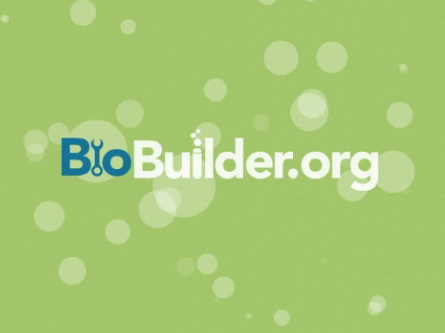BioBuilding2012 workshop @ UC Berkeley

PROFESSIONAL DEVELOPMENT WORKSHOP
Application
Link or download pdf
Information
You are invited to apply to the BioBuilding2012 workshop @ UC Berkeley. This week long, professional development class will prepare educators to bring biological engineering and synthetic biology into their classrooms and laboratories. The workshop will include
- lectures that connect the engineering/science/math and technology aspects of these fields
- labs and classroom activities taught from the online BioBuilder.org resource,
- lunchtime discussions with members of MIT’s synthetic biology community
- activities that address human practice questions such as the safety, security, economics and wisdom of engineering novel biological systems
This workshop will run from July 30th-August 3rd, 2012. Attendees will receive lunch each day and 67.5 PDPs. Attendees must commit to carry out a BioBuilder activity in the 2012-2013 academic year, and provide feedback on the effort.
Who should apply?
This workshop is intended for:
- High school Biology teachers, especially those looking for new ways to teach the AP content or for compelling material to teach college-bound students after the AP exam is completed
- College level instructors looking for classroom and lab curricula to include in a biotechnology-style class
- Science Club leaders, in particular anyone looking for ways to bring cutting-edge content to students with a variety interests from math to biology to electronics.
How to apply?
Send a copy of your CV and a completed application to the following address:
Kate Spohr
QB3 Institute, UC Berkeley
206 Stanley Hall #3220
Berkeley, CA 94720-3220
The application is online here or can be downloaded here.
Applications are due March 16th, 2012 and applicants will be notified by April 2nd, 2012.
Questions?
biobuilding2012ucb AT gmail DOT com
GENERAL INFORMATION
What is Synthetic Biology?
Synthetic Biology is an emerging field that applies engineering and mathematical principles to the development of novel biological systems. These principles and technologies extend the teaching of molecular genetic techniques into real world, authentic applications. Examples of synthetic systems include bacteria that smell like bananas, and light-sensitive bacteria that can serve as pixels in a photograph. These teachable systems are included in the curriculum at Biobuilder.org.
Why teach Synthetic Biology?
Synthetic biology provides teachers and students an engineering context to learn molecular biology, genetic engineering and microbiology methods. This approach asks students to learn while designing, or testing designs of, engineered biological systems. In addition, this approach provides science teachers with a means of exploring numerous state and national technology standards that are hard to address in most science classes.
Who’s teaching BioBuilding2012?
- Dr. Natalie Kuldell
Natalie Kuldell, Director of the BioBuilder Educational Foundation, teaches in the Department of Biological Engineering at the Massachusetts Institute of Technology. She develops discovery-based curricula drawn from the current literature to engage undergraduate students in structured, reasonably authentic laboratory and project-based experiences. She completed her doctoral and post-doctoral work at Harvard Medical School, and taught at Wellesley College before joining the faculty at MIT.
- Katie Hart
Katie Hart is SynBERC’s student director of education and outreach. As a graduate student in Susan Marqusee’s lab, she regularly applies the principles of genetic engineering to her research in protein evolution and design. Katie’s classroom experience ranges from afterschool elementary-level enrichment workshops to college-level laboratory courses. She is passionate about science education at all levels and plans to continue her work in curriculum development and teaching after completing her PhD.
- Orenda Tuason
Orenda Tuason has been a teacher for 14 years and currently teaches Biology, AP Biology, and Biotechnology at Crescenta Valley High School in La Crescenta, California. She is also the coordinator of the Academy of Science and Medicine, a career pathway program at Crescenta Valley HS with over 300 students. In addition to teaching, she works on weekends as a Clinical Laboratory Scientist at USC/Norris Cancer Hospital where she has worked in clinical microbiology for over 20 years. She holds BS degrees in Medical Technology and Electrical Engineering, an MS degree in Molecular Microbiology and Immunology, and a Masters in Education. Orenda is dedicated to teaching Biotechnology and is enthusiastic in her ongoing measures to enhance her curriculum to increase interest among her students. She is excited that her Biotechnology course was one of two courses awarded “CPA A-G Program Status” by the University of California in 2010.
Lunchtime seminars from members of SynBERC and UC Berkeley's Bioengineering Department (faculty TBA)
Stay tuned for additional information and links!